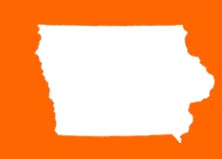

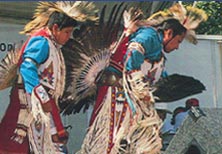
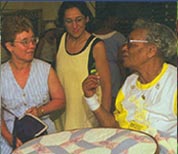
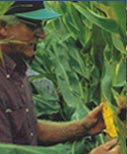
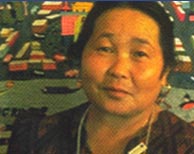
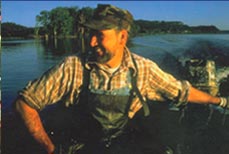
| Resources | ||||||
|
||||||
| Learning Guide |
| 1. Social Studies |
| 2. Language Arts |
| 3. Music |
| 4. Art |
| 5. Special: Multi-Disciplinary, Culminating Activities |
|
|
Technical Support For more information about the Iowa Folk & Traditional Arts Roster and possible musicians, folk artists, storytellers, or others who can participate in a class or school program, contact: Riki Saltzman, Iowa Arts Council, 600 East Locust, Capitol Complex, Des Moines, IA 50319-0290, telephone 515-242-6195, fax 515-242-6498, or e-mail riki.saltzman@iowa.gov. For information about this Learning Guide contact: Educational Specialist, Center for Folklife Programs & Cultural Studies, Smithsonian Institution, MRC 914, Washington, DC 20560, or telephone 202-287-3424, fax 202-287-3699, or e-mail cwww.cfpcs@ic.si.edu. Also check the World Wide Web on the Internet at www.si.edu/folklife/education/. For Further Reading Bartis, Peter. 1979, revised 1990. Folklife and Fieldwork: A Layman’s Introduction to Field Techniques. Washington, D.C.: American Folklife Center, Library of Congress. __________, and Paddy Bowman. 1994. A Teacher’s Guide to Folklife Resources for K-12 Classrooms. Washington, D.C.: American Folklife Center, Library of Congress. Belanus, Betty, ed. 1985. Folklore in the Classroom. Indianapolis: Indiana Historical Bureau. Brunvand, Jan Harold. 1981. The Vanishing Hitchhiker: American Urban Legends and Their Meanings. New York: W. W. Norton. Camp, Charles. 1989. American Foodways. Little Rock: August House. Chiseri-Strater, Elizabeth, and Bonnie Stone Sunstein, eds. 1997. Field Working: Reading and Writing Research. New Jersey: Blair Press, Prentice Hall. Cutting-Baker, Holly, et al. 1976. Family Folklore: A Model Course Outline for Secondary Schools and Colleges. Washington, D.C.: Center for Folklife Programs & Cultural Studies, Smithsonian Institution. Florman, Jean, ed. 1995. Prairie Voices: An Iowa Heritage Curriculum. Iowa City: State Historical Society of Iowa. Ives, Edward D. 1964. The Tape-Recorded Interview: A Manual for Field Workers in Folklore and Oral History. Knoxville: University of Tennessee Press. Knapp, Mary, and Herbert Knapp. 1976. One Potato, Two Potato: The Folklore of American Children. New York: W. W. Norton. Kozma, LuAnne. 1991. Folkpatterns Leader’s Guide: A Cultural Heritage Program. East Lansing: Michigan State University Cooperative Extension Service. Leary, James P., and Richard March. 1996. Down Home Dairyland: A Listener’s Guide (book and cassettes set). Madison: University of Wisconsin Press. Lornell, Kip. 1993. Introducing American Folk Music. Madison: Brown and Benchmark. MacDowell, Marsha, ed. 1987. Folk Arts in Education: A Resource Handbook. East Lansing: Michigan State University Museum. Martin, Philip. 1994. Farmhouse Fiddlers: Music & Dance Traditions of the Midwest. Mount Horeb, WI: Midwest Traditions, Inc. Matthews, Gail, and Don Patterson. 1991. Learning from Your Community: Folklore and Video in the Schools. Columbia: South Carolina Arts Commission. Morain, Thomas J., ed. 1995. Family Reunion: Essays on Iowa. Ames: Iowa State University Press. Ohrn Steven, ed. 1984. Passing Time and Traditions: Contemporary Iowa Folk Artists. Ames: Iowa State University Press for the Iowa State Arts Council. Parker, Diana, and Charles Camp. 1979. Folklore in Education: Readings for Secondary School Teachers. Baltimore: Maryland Arts Council Folklife Program. Sayres, Robert F., ed. 1989. Take This Exit: Rediscovering the Iowa Landscape. Ames: Iowa State University Press. Simons, Elizabeth Radin. 1990. Student Worlds/Student Words: Teaching Writing through Folklore. Portsmouth, NH: Boynton/Cook Heinemann. Wiggington, Eliot. 1985. Sometimes a Shining Moment: The Foxfire Experience. Garden City, NJ: Doubleday. |
| | | Next |
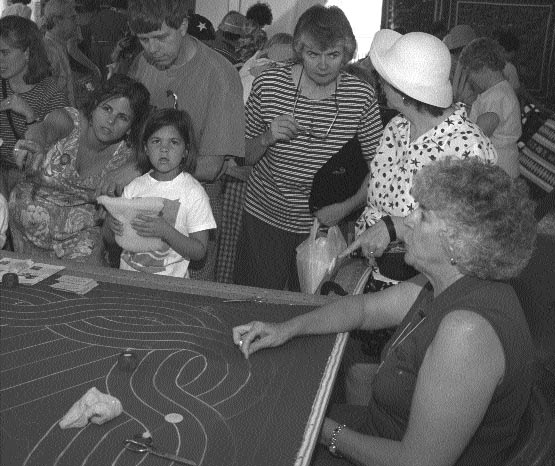 |
[PHOTO BY MARTY KAPLAN] Caroline Trumpold demonstrates Amana-style quilting at the Smithsonian Festival. |
| smithsonian institution |
 |
pioneer hi-bred international, inc. |
iowa sesquicentennial commission |
 |
iowa arts council |